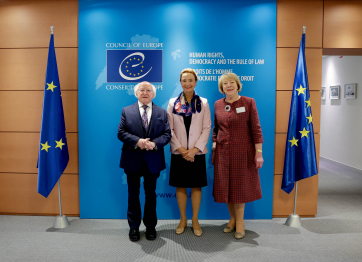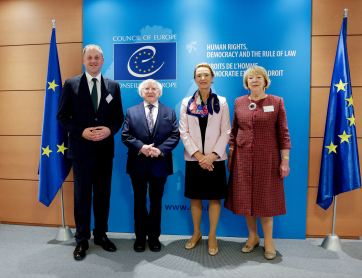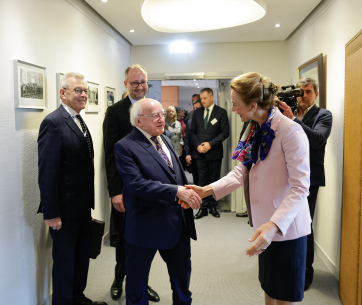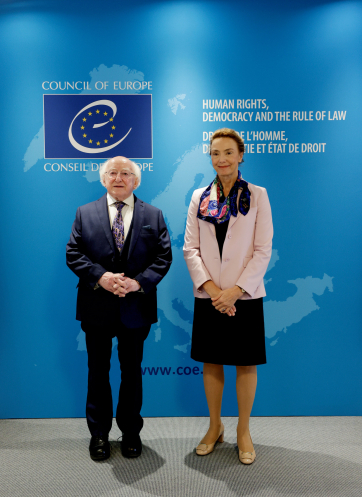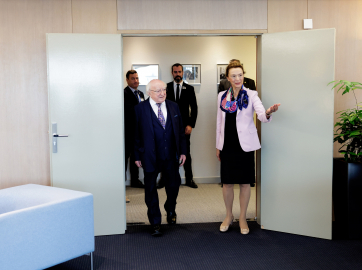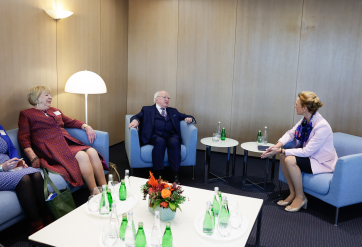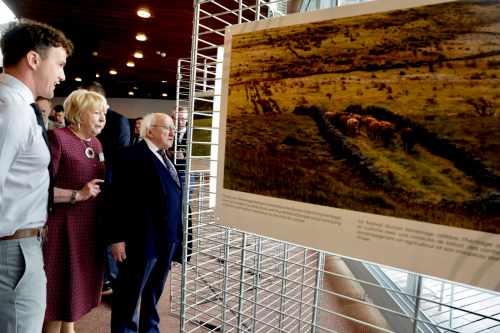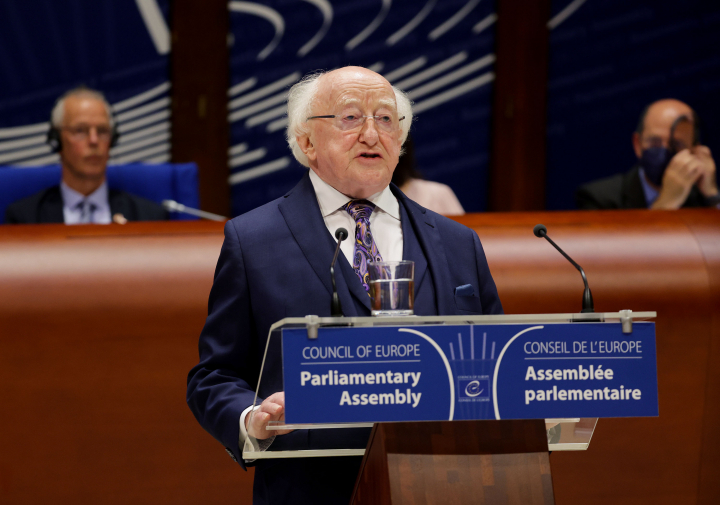
The President of Ireland, Michael D. Higgins, addressed the Parliamentary Assembly of the Council of Europe in Strasbourg.
This was the second time that President Higgins has addressed the Council of Europe as President, having previously addressed the Assembly on 27 January 2015. This visit took place during Ireland’s Presidency of the Committee of Ministers of the Council of Europe, which runs from 20 May to 7 November.
In his address, entitled “Reasserting the Moral Weight of the Council of Europe”, the President considered the extreme challenges currently facing multilateralism, including the consequences of the illegal Russian invasion of Ukraine. He also addressed the devastating food insecurity crisis in the Horn of Africa, as well as highlighting the need to set out a longer term vision of the role of the Council of Europe in a post-conflict Europe, and how that role might fit within a wider and more effective global multilateral and institutional architecture.
Given the profound ethical significance of the European Convention on Human Rights, one that is admired and emulated across the globe, the President emphasised the Council’s fundamental strengths and opportunities in rebuilding peace, and suggested that the Convention be re-invoked, extended, bolstered and re-asserted in order to become part of the discourse of the European Street.
The President stressed that no more than the work of the United Nations, citizens must be engaged with the work of the Council of Europe, with Member States providing mechanisms of transparency and accountability for the work of the global and regional institutions.
President Higgins noted that the year of his last address to the Council was also the year of some of the world’s brightest moments of hope, in the form of the agreements in New York and Paris on the United Nations Sustainable Development Goals and COP21, which provided us with a model for the construction of a sustainable future for humanity and for our planet.
Building on that model, the President argued that the Council of Europe must focus on the indivisibility of human rights, in all its dimensions, and commit to a wider definition of comprehensive security in Europe. Such a definition could contribute a European step towards a universal human rights-based approach to security, a security that includes the rights to live free from food insecurity, and all of the rights of participation.
In addressing the threat of famine in the Horn of Africa, President Higgins stated the importance of reaching all the short-term humanitarian targets which have been agreed in order to tackle the immediate shortages and save lives. He further noted however that this alone is insufficient, and highlighted the need to address the structural factors contributing to food insecurity and to do so from a rights-based perspective, dealing with issues such as debt, monopolistic control of production and distribution of staples in food.

